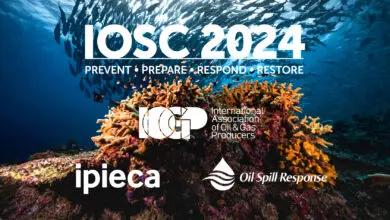
This month’s Pulse interview is with Olav Skår, IOGP Safety Director.
Olav is based at IOGP’s Headquarters in London, and kindly agreed to this short interview on how the Association supports its members in improving their safety performance.
1. How can standardization help IOGP’s Members to improve their safety performance?
It may be useful to take COVID-19 as an example. We have seen that different countries have responded in different ways to the same issue. This creates the potential for confusion and only partial success. We can draw a parallel with safety priorities. If we have a standardized approach across our industry – for our very international and mobile workforce – it would simplify, reduce confusion, allow for more focus on specific risk areas in individual locations, and, ultimately, enable better outcomes.
Further, it would be more efficient if the available resource focuses on implementation rather than developing new topics. A great example is our Life-Saving Rules which, ultimately, is a practical translation of lessons learnt from the entire globe. It is a fantastic way to spread those learnings and put them into practice where it matters.
2. What is the Safety Committee currently working on to strengthen these efforts?
Project Safira mapped out all the key risk areas and enabled us to focus on the areas with the potential biggest impact and there are many priorities being progressed in support of that aim. Two distinct deliverables currently in the approval phase are IOGP Report 690 – which will significantly raise the bar for offshore helicopter operations- and IOGP Process Safety Fundamentals, which, like our Life Saving Rules, is informed by our significant dataset.
Now that we have developed these resources we are focusing on implementation and communication.
All these efforts are underpinned by our data systems, which are being simplified and made more accessible. More on that to come later, but these are exciting times.
3. Safety is a top priority for the oil and gas industry. How does collaboration with other organization in the area of safety look like for IOGP?
COVID-19 has proven the ability and willingness of different entities to collaborate on an unprecedented level. Where we had active industry-wide collaborative structures, like in aviation or diving, we were able to quickly come together and stake out a joint direction. Other organisations took longer as it was not clear what each entity would contribute nor what their priorities were.
Most importantly, the crisis has opened new opportunities for engagement. For instance, we have been active with the UN Global Compact, and been able to represent our Members at a level to which we previously did not have access. We have been able to work effectively together towards common priorities as forces for good. It is a priority to build on these relationships and I believe we are well positioned to make our unique dent in the safety universe.



